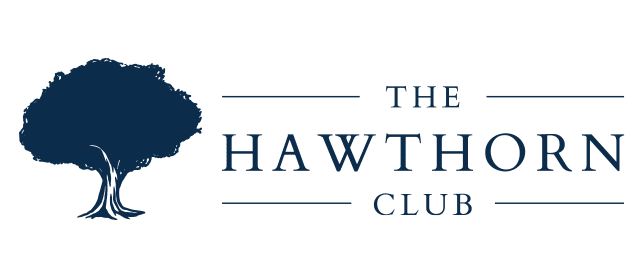In conversation with
Liz Westcott
Executive Energy, EnergyAustralia

Liz Westcott

Alice Gibson
The global Covid-19 pandemic has sparked heartening instances of ethical leadership from governments, companies and individuals. It has also sparked concerning instances of ethical failure. The Hawthorn Club’s APAC Advisor, Alice Gibson, is studying the ethical leadership phenomenon. In this conversation series she talks to some of the Hawthorn women about their experience of ethical leadership, and what this means for them during the Covid-19 pandemic.
Alice:
What’s the most important difference you’ve experienced during the COVID-19 crisis compared to ‘business as usual’?
Liz:
We’ve got a higher degree of trust being demonstrated and exhibited across the whole of the industry. I feel that trust has gone to a new place and there’s a presumption of best intent that wasn’t there before. I see it in organisations and how they work with each other. I can see a level of trust between governments and regulators in industry that wasn’t apparent before. We are able to talk more openly with each other, without fear of the vulnerability being taken advantage of.
We can admit where we have plans in place, or where we don’t. Concerns can be shared, and people genuinely are trying to help each other, without being Pollyanna about it. Two examples jump out for me. The first being we have multiple regulators and industry bodies in the energy sector, and we are now getting them all together and saying; “What are all the reforms everyone’s working on, and can we put them on one list?”
Why could we not do that before? There was no structural reason, but there really wasn’t a view of good intent before. There just wasn’t the trust to share all the regulatory reforms, which is really a benign thing to do. The second example is we’ve had weekly meetings with the New South Wales Minister for Energy and Planning. You can ring up and say, “I need some help with this,” and the Government tries to work its machines to help you out. I think that degree of trust has also played out within the organisation. I can see an increase in psychological safety for employees in EnergyAustralia. We trust our workforce more. Previously, there was discussion whether somebody could effectively work from home. Would they actually deliver, are they going to be productive? What about children? There was a lot of debate. That’s all gone out the door. Everyone’s working from home if they can. And our people are delivering. If there’s children running around in the background, or somebody’s unavailable during drop-off times at school, there’s a trust they’re going to do the work, maybe just not during 9 – 5.
Alice:
Do you think that that trust will continue?
Liz:
I think it should continue! I was trying to think through what is different to how organisations are responding to COVID-19 compared to how they’ve responded to other crises in the past. I think maybe – for the first time – there has been a very indiscriminate attack on the entire population from a random thing that isn’t another entity. It’s impacted people who had thought they were probably immune to ever needing anything from anyone. We’ve got doctors, lawyers, pilots, CEOs, and entrepreneurs who are finding themselves in places they’ve never been, on the end of needing help. They’re getting firsthand experience of a situation that they’ve always viewed to be ‘other people’.
If it’s not firsthand, its second-hand; just about everyone knows someone who has been affected. And some of these have influence from an organisational perspective and can drive change in a systemic way. It possibly won’t transfer to generations that haven’t had the personal experience, because that tends to be our culture; we learn from experience.
Trust in your employees translates into the front line in a way that is quite hard to numerically assess perhaps, but there’s plenty of studies that show high employee wellbeing and a motivated workforce will lead to better customer outcomes. For organisations who trusts their employees, it’s a very tangible benefit, as well as knowing you’re doing the right thing.
Alice:
What’s the right thing?
Liz:
There are so many versions of that! But putting the employee front and centre of how you run your organisation is one. With regard to ethical leadership, doing the right thing is one of the driving ideas. I think a piece that’s come out with how we’ve responded to COVID-19, is a different understanding of what it means to put the employee first. Many organisations don’t actually put the employee first. They put the customer first in their rhetoric. From my experience, safety has always been a high focus for people in the energy industry; but I think we are only now demonstrating what it’s like to put safety first, in a way that we hadn’t really appreciated before. When we put safety first previously, we would write a procedure for a particular activity. We thought of the most efficient way to do the activity, and then we’d try and make it as safe as possible.
Now I think we put the employee’s safety first in the conversation. For instance, we can’t be more than one-and-a-half meters apart, we can only have four people in the lift; you can’t have crews touching. Before we started with the efficient solution, and then we tried to make it safe, maybe compromising efficiency as we went. Now we start with the safe solution and try to make it efficient.
Alice:
Do you think that that approach will continue?
Liz:
It won’t just naturally happen. But it’s this firsthand experience of what it’s like to do it this way, and so we will be able to reference it. We can say, “Back in COVID, remember when… ” And then the organisation or the team that are trying to work out how to do something will remember, “Oh yeah, that’s right. What’s the one-and-a-half-meter equivalent in this situation?” I think it will become a touchpoint we can use to really articulate what it is to do these things in sequence. When you put the employee wellbeing much more front and centre, and you genuinely believe it, it’s felt.
Alice:
You touched on the lack of trust before, which is perhaps understandable between competitive players in the industry. But it’s less understandable why that lack of trust might have existed between industry and government. Why do you think that was?
Liz:
I think there is alignment between industry and government about what the future needs to look like. It needs to have power that’s reliable, affordable, sustainable and better for the environment. We can all get behind that, but that’s about where we stop getting behind something. It’s nonspecific. How do you get there? That has been the real issue.
Government and industry all see different paths, and without being able to fast forward and see who got it right, we’ve got a lot of players trying to influence the system to deliver their preferred path to the future. There’s been a lack of trust that somebody’s actually doing it in the general interest in some way.
Alice:
What’s different about this pandemic environment?
Liz:
It’s the immediacy of it. The need to deal with something in the next 18 months has enabled people to say, “Well, I can agree with you for the next 18 months.” This makes the most sense, because so many of the other levers are much longer term. It’s just whether we can extend that 18-month window to five years and ten, or not. But at least I think if we can see examples where we were able to reach a compromise for everyone, even if it’s a near-term effort, it might build the pathway for a more trusting environment going forward.
Alice:
In the bushfire example, what did Energy Australia do?
Liz:
We were directly impacted. One of our powers stations was in the line of fire at New South Wales over November, December 2019 and January. We had members of our workforce supporting the New South Wales response, plus we had to look after our own asset.
Then the fires really took to the East Coast and impacted our customer business more directly, where we had multiple customers who were faced with their livelihoods changed and an inability to pay for their bills. We set up a workplace giving program where the company tripled your donation through a number of shareholders matching donations. We raised more than $300,000 in addition to volunteering time, water tanks and other items for our charity partners.
We quickly used data and analytics to look at impacted groups of people by postcode and gave them messages around bill relief.
We worked quite hard to make sure we had sufficient power in the NEM [National Energy Market] itself, because Snowy [Hydro] was directly impacted by the fire and lost transmission. We had some very acute weather days, and there was a lot of coordination around outages and keeping power stations available to make sure we covered all those big days. We ran a crisis team through that process as well.
Alice:
Are there other examples of ethical leadership during the COVID period?
Liz:
We’ve got stories where we’ve had people who were trying to work from home, but were struggling in their personal situation to make that work; domestic violence may be one example. We’ve worked hard at each of the sites to come up with the right answer for everyone.
It’s been quite acceptable to come to work for reasons you don’t need to fully disclose. We won’t evaluate it at that granular level, but we accommodate people in the office, and we keep the spacing. So the group of people who were at work wasn’t based on their tasks. It was based on their personal situation and their need for an employment location. I think that was ethical leadership, rather than saying; “Your type of work could be done from home therefore you’re at home”, individual situations have been accommodated.
Another example is truly caring about people. A lot of us now have a weekly video call with the team, and we’re doing a ‘rate your day’ or ‘rate the week’, between one to ten. It’s been great hearing the team members share what it is that’s causing them to be at their particular number out of ten, and other team members intervening to help, rather than it being the leader’s responsibility to support everybody. I’ve found that to be very useful, and I’d say the majority have enjoy it and benefited, with a minority that don’t.
Alice:
Why do you think that is?
Liz:
It’s too much for them. They don’t want to go there. What I find interesting is that we often design processes and systems to cater for that small minority. So, you could risk cancelling the meeting because two people don’t like it; and then 80% of the people miss out because we’re catering to the minority.
Alice:
How do you think COVID has impacted on the commitment to the energy transition?
Liz:
I think it keeps changing how it’s impacting. An answer a month ago might be different to an answer now, which might be different to an answer going forward. Very immediately, it became “how do we keep the lights on, and keep the workers safe; and what do we do if a colleague gets infected?” As the situation moves on we will start looking at how COVID’s structurally changing the world, and is it actually the same transition we thought it was in January? And it has changed. With all of us at home and not in offices, we’ve really moved the demand profiles around. We’ve had a very mild autumn, and we’ve had a very cold start to winter. We had two weeks of literally no wind, particularly at six o’clock at night. That has thrown into stark relief all the possibilities that were always there in a transition, but we are now experiencing in a very acute way.
For instance, we’ve had lots of volatility in the market and pricing, because there has been no wind. We’ve got 7,000 megawatts of wind installed in the NEM, and we only had 100 megawatts deployed. It’s showing that the system really needs to be here for six o’clock at night – in that case. The big base loading stations can’t do it; they can’t run that hard. We’ve had all the guest plants of the NEM firing up every night.
I think this is demonstrating the challenge of the transition. You can’t afford to finesse it to the nth degree that planners like to, where we need eight per cent reliability, or we need just a certain percentage of additional capacity in the system at any point in time. It’s just not that precise. There are too many big variables, like wind and solar, how cold it is, if all of us are at home – we’re using a lot more power than our offices do.
Alice:
Given these challenges, what is the role for ethical leadership?
Liz:
The role EnergyAustralia is trying to play, is to help people understand what we’re seeing. To explain the complexity we’re observing to Government, at all levels, State and Federal. We are seeing the market conditions through our lens obviously, but we spend a lot of time seeing it. So, trying to help the decision makers truly understand what we’re seeing. They don’t have the same time to invest in it like we do, and they don’t necessarily have access to the same data sources we do.
For me, that’s a great example of ethical leadership, where we’re truly trying to make sure that the decision makers have the most information for their decision-making. And yes, it’s possible to try and promote a particular angle that is to your advantage, but we’re really trying not to do that as much as just explain the situation. Explain the sensitivity and the concern we have with various initiatives and how they will impact the market going forward.
Alice:
What do you think are the timelines for returning to normal, and will we return to normal?
Liz:
I don’t think of returning to normal. This is normal, and then in two months it will be a different normal. Living with that uncertainty is the normal now. And in the energy sector, we’ve had huge change for years. It’s not been stable at all. This is just another one, and that’s the way I talk about it with the guys at the sites now. COVID’s just another consideration as you go about your work.
How we relate to each other in the office space is still yet to be discovered. Previously, there was a high conformist need, “You should be fine going to the office.” There shouldn’t be any concern with open planning, and you’re not allowed to complain about it.
Now it’s okay not to want to come to work, it’s okay not to want to get in a lift. So, there’s a lot more permission to be who you are. So, I hope that’s our new normal, that we’re more accepting of all the variations.
(Please note this is an amended transcript of the conversation for the purposes of readability.)


